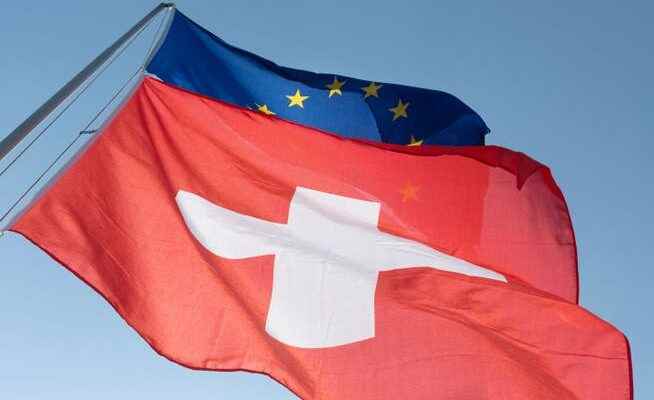Switzerland must pursue its interests towards the EU. At the same time, however, it must also explain how its role in a future Europe could look like, so that it does not wither into insignificance in foreign policy.
The balance between Switzerland’s independence and its integration in Europe becomes a fiction,
At the beginning of December 2022, the Federal Council published its “Situation on relations between Switzerland and the EU”. The government is cautiously optimistic in its assessment. The EU respects the Swiss approach of providing for exceptions to the free movement of people and is open to not subjecting these exceptions to the interpretation competence of the European Court of Justice.
Independence and Inclusion
However, there is one topic that hardly ever finds resonance in the current and all previous Federal Council EU reports: What is Switzerland’s contribution to the construction of “Europe”? Turn it however you want, the EU is being built, with difficulties and setbacks, but with considerable progress over time. In addition, in the east of our continent there is another Europe, the state of which we cannot be indifferent to, see the events in Ukraine.
Foreign policy is interest politics. In the assessment of the situation mentioned, this principle is already expressed in the title of the first chapter, “Swiss interests begin in and with Europe”. But one looks in vain for an answer to the question of what role Switzerland plays and wants to play in this Europe.
Federal Council stays in Brussels and visits by Commission members to Switzerland have become rare. Most encounters take place ad hoc at conferences such as those in Davos or New York. Personal contacts are important. The EU ministers meet several times a year. As a non-member of the EU and the EEA, the doors for Switzerland are only a crack open and since the failure of the framework agreement sometimes completely closed. This does not make it any easier to protect Swiss interests.
The Federal Council believes that there should be a balance between independence and integration in order to ensure that Switzerland has the greatest possible scope for action in the international community. That sounds good. But here, too, the noble intention and reality diverge. Switzerland is increasingly struggling to exert influence: its legislation is increasingly adopting EU law without Switzerland having been able to participate in its drafting. Switzerland’s good offices are less in demand than they used to be. The neutrality meets with incomprehension. Last example: the arms and ammunition re-export policy.
Switzerland’s influence is also declining in international organizations. Switzerland’s seat on the UN Security Council cannot hide the fact that only a few Swiss still hold senior management positions in international organisations, let alone lead them. If there is a selection process, the EU candidates have an advantage as they represent a large, powerful community.
In short: the balance between independence and involvement is becoming a fiction, because our independence dwindles with every contractual assumption of rights or every autonomous implementation and because the Swiss possibilities of exerting influence will decrease, since we are perceived but not considered to have a say.
contribution to the construction of Europe
Are we selling our contributions poorly, or are they bouncing off the performance of EU members? Switzerland’s trade deficit with the EU is CHF 5.8 billion. Yes, but we could not replace many of the imported goods with substitute products from third countries without disadvantages.
Switzerland makes a cohesion contribution of one billion Swiss francs a year to improve the integration of the new EU member states. Yes, but countries of a similar size, such as Austria, Sweden or Belgium, contribute several times the EU budget for the integration of the eastern states into the European value system. 350,000 cross-border commuters work in Switzerland. Yes, but where else would it get these essential workers? With the north-south railway connection, Switzerland is making a significant contribution to relieving traffic routes. Yes, but at the same time the EU’s thousands of kilometers of route network give Switzerland access to the centers and overseas ports.
The Federal Council is sticking to the EU strategy that has now been adopted. That’s right. After the negotiations on the framework agreement were broken off, Switzerland simply cannot afford another drama. It is also legitimate to defend your own interests to the best of your ability. But that’s not enough. The desired position of Switzerland in a future Europe should be reviewed and explained. What role should and can Switzerland play in the construction of Europe in the EU and non-EU area? What role must Switzerland strive for so that it does not atrophy to insignificance? What tools should be provided and what precautions should be taken to avoid this?
One day the coming generation will ask us: Our Europe was built, Switzerland defended its very own interests. But what contribution did she actually make to this structure?
Jean Daniel Gerber is a former Secretary of State for Economic Affairs (Seco).
